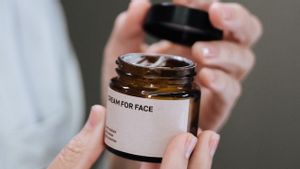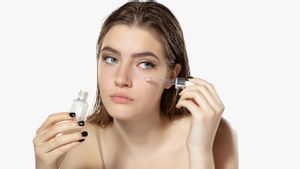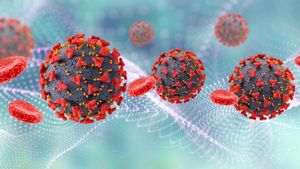JAKARTA - The skin gets its color from pigments called'melanin' (natural segments found in most organisms). Special cells on the skin, called melanocytes, produce melanin. The study says that the size of the unit melanin on the skin is the same for each race but varies between areas of the body. However, there are also people who produce more melanin than others.
This difference is caused by genetics and other factors. When these cells are damaged or disturbed, it affects melanin production. Some pigmentation disorders only affect part of the skin, while other disorders can affect the skin color of your entire body.
Disorders of skin pigmentation, such as hyperpigmentation, have an effect on your skin. According to Dr. Pragatai Naval, cosmetic surgeons quoted from the Times of India, Thursday, August 24, "Hiperpigmentation" can cause skin patches to become darker than the skin around them. This happens when the skin produces excessive melanin. This is very common in people who have a darker skin color, because melanin production is already high.
VOIR éGALEMENT:
Types of hyperpigmentation that are common include spots of aging due to damage to sunlight or inflammation due to acne. It can also melasma due to hormonal fluctuations as seen in pregnancy.
Thus, you can see how hyperpigmentation is directly related to melanin production disorders. But pigment is also important and much needed in our bodies. In addition to providing pigmentation to your skin, hair, and eyes, this pigment brings other additional benefits. The right amount of melanin on the skin shows antioxidant activity by destroying the harmful free radicals produced by sunlight, pollution, and smoking. It also protects us from UV radiation.
Despite aesthetic views, although hyperpigmentation poses no health threat, it is important to consult dermatologists to diagnose and deal with potential causes of hyperpigmentation.
Currently, many clinics and home care measures are available. Depending on the severity, it is advisable to consult a specialist and then take the necessary action to address these conditions.
The English, Chinese, Japanese, Arabic, and French versions are automatically generated by the AI. So there may still be inaccuracies in translating, please always see Indonesian as our main language. (system supported by DigitalSiber.id)

















